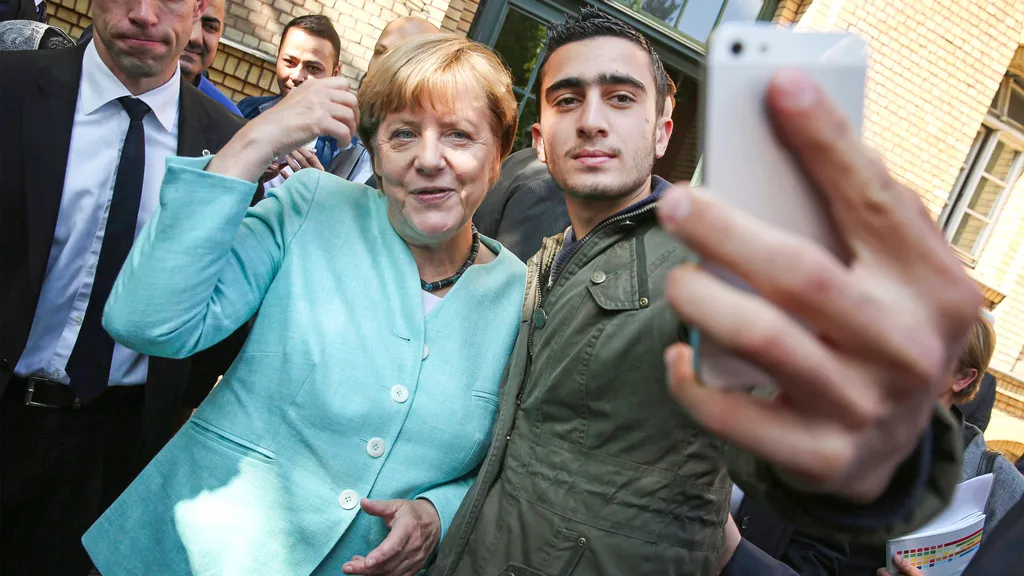Ten years have passed since Angela Merkel made one of the most defining decisions of her time as chancellor, keeping Germany’s borders open during the 2015 migrant crisis. The images of exhausted men, women, and children carrying bags and walking through central Europe became symbols of that moment. Most of them were fleeing the wars in Syria, Iraq, and Afghanistan. By late that year, Germany had received over one million people, a choice that divided the nation but also reshaped it.
For many refugees, the memory of that journey remains painful. One of them is Asmaa Hweja, a 53-year-old Syrian who fled the city of Homs with her two children. She recalled traveling for 12 days, at one point locked inside a sealed vehicle with no air, fearing they would suffocate. From Turkey, they crossed the sea in a crowded dinghy before walking along the Balkan route with swollen feet and broken shoes. When she finally arrived in Berlin, she faced the difficult task of starting life from nothing — learning German, raising her children, and navigating complex paperwork while standing in long lines at government offices. Yet, she also remembers the kindness of German volunteers who offered food and support. Today she is a German citizen, works with two refugee aid groups, and proudly says, “Thank God, I think I made it.”
For Germans who chose to help, the year 2015 also changed their lives. Katrin Albrecht, then working as a communications consultant, felt helpless watching the crisis unfold on television. She began volunteering, helping refugees find housing, and within a year she left her job to work full-time for a charity. The organization now runs a program that helps Syrians apply legally for visas so they do not risk dangerous journeys across the Mediterranean. She recalls how emotional it was to see family reunifications, such as a father meeting his child for the first time at the airport. Albrecht believes that Germany has achieved much and wishes more people would recognize that when society comes together, it can accomplish great things.
But not everyone remembers that period positively. Markus Hiebl, now mayor of Freilassing, a small town on the Austrian border, described it as a “frightening” time. Back then, thousands of refugees arrived daily through his town. An old furniture store had to be turned into a welcome center, and about 160,000 people were processed in a town that had only 16,000 residents. Hiebl said Merkel’s famous phrase, “We can do this,” might not have been fully thought through. He believes if the same situation happened today, it would need a concrete plan to share responsibilities among states.
Merkel herself has defended her decision despite criticism and claims that it fueled the rise of the far-right Alternative for Germany (AfD) party. She admitted the country was unprepared for the sheer scale of arrivals, with initial estimates of 400,000 refugees in 2015 quickly doubling, before the final number passed one million. Yet she stood by her choice, saying that given the same situation, she would act the same way again. Merkel emphasized that the enormous effort of many Germans to welcome the refugees remains one of the most important lessons: when a challenge arises, it must be faced with determination.
Today, Germany continues to live with the consequences of 2015. Some refugees have successfully built new lives, while debates over migration, integration, and the rise of right-wing politics remain active. For many, the events of that year will always mark a turning point — one that tested the country’s values, its capacity for compassion, and its ability to adapt in the face of an unprecedented challenge.

